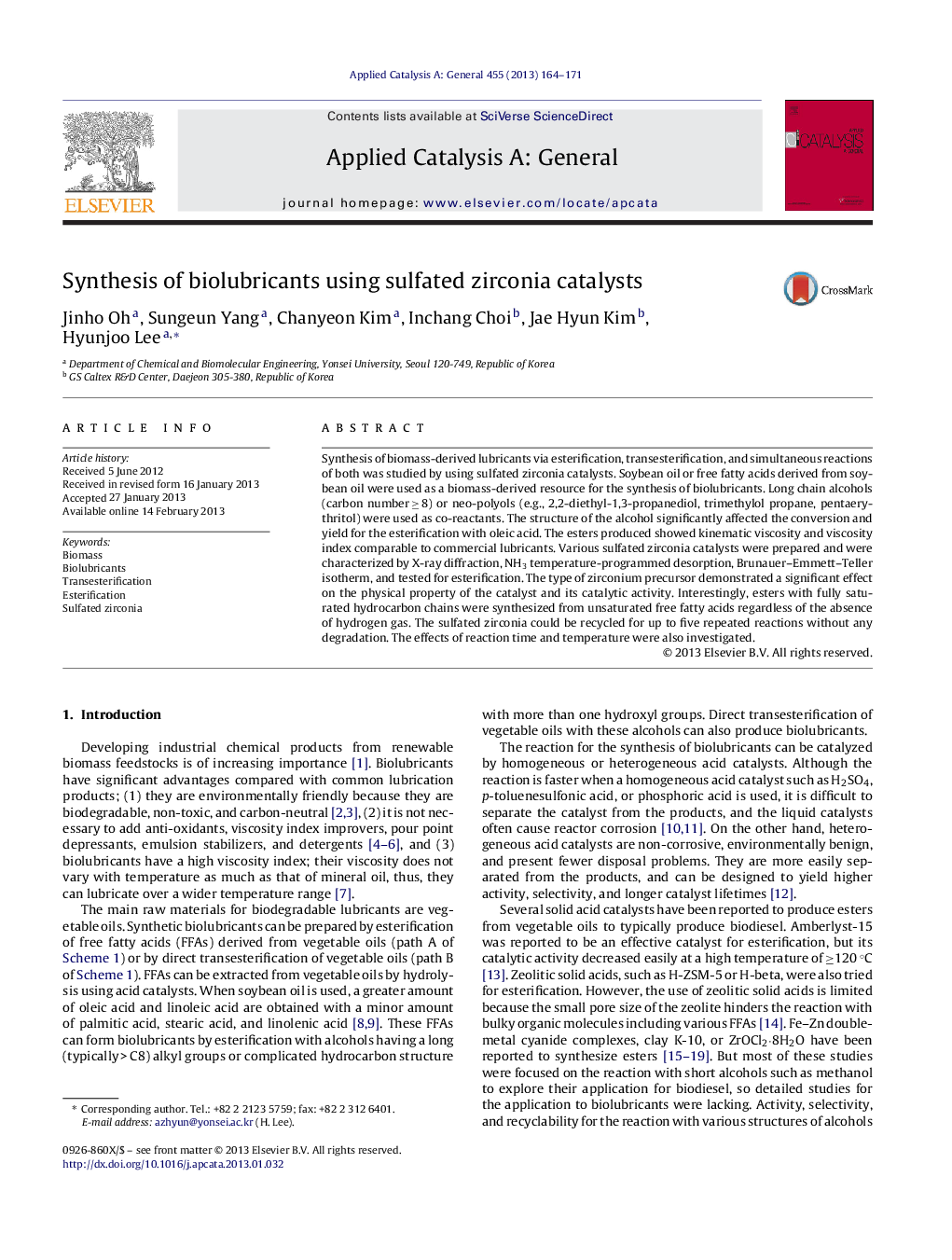| Article ID | Journal | Published Year | Pages | File Type |
|---|---|---|---|---|
| 40360 | Applied Catalysis A: General | 2013 | 8 Pages |
Synthesis of biomass-derived lubricants via esterification, transesterification, and simultaneous reactions of both was studied by using sulfated zirconia catalysts. Soybean oil or free fatty acids derived from soybean oil were used as a biomass-derived resource for the synthesis of biolubricants. Long chain alcohols (carbon number ≥ 8) or neo-polyols (e.g., 2,2-diethyl-1,3-propanediol, trimethylol propane, pentaerythritol) were used as co-reactants. The structure of the alcohol significantly affected the conversion and yield for the esterification with oleic acid. The esters produced showed kinematic viscosity and viscosity index comparable to commercial lubricants. Various sulfated zirconia catalysts were prepared and were characterized by X-ray diffraction, NH3 temperature-programmed desorption, Brunauer–Emmett–Teller isotherm, and tested for esterification. The type of zirconium precursor demonstrated a significant effect on the physical property of the catalyst and its catalytic activity. Interestingly, esters with fully saturated hydrocarbon chains were synthesized from unsaturated free fatty acids regardless of the absence of hydrogen gas. The sulfated zirconia could be recycled for up to five repeated reactions without any degradation. The effects of reaction time and temperature were also investigated.
Graphical abstractFigure optionsDownload full-size imageDownload high-quality image (90 K)Download as PowerPoint slideHighlights► Sulfated zirconia catalysts were used for effective synthesis of biolubricants. ► Biolubricants consist of esters produced via esterication/transesterification. ► Soybean oil or its cleaved free fatty acids were used as biomass resource. ► In situ hydrogenation occurred without H2 gas. ► Biolubricants showed improved viscosity index compared to commercial products.
